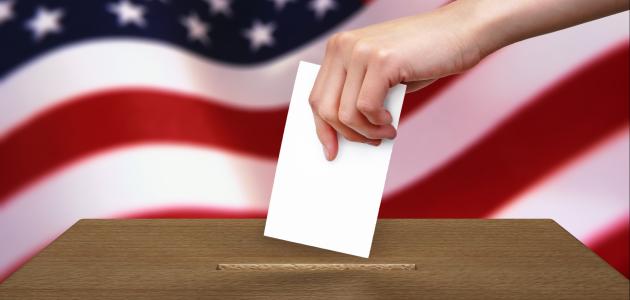In this week’s edition, the US is taking steps to bolster Israel's missile defenses in the ongoing Israel-Hamas War. Additionally, the Biden-Harris Administration has designated 31 Tech Hubs across America to drive innovation and job creation. The US government is pushing for stronger tech regulation by vocalizing digital trade demands at the WTO to make way. In the realm of technology and defense, companies are lobbying Congress to approve a $1 billion “Hedge Portfolio” aimed at fielding commercial technology for the Department of Defense. In innovation news, Ford is testing drone deliveries at Detroit's Michigan Central Station. Lastly, misinformation about the Israel-Hamas conflict is rampant on social media, highlighting the challenges of managing digital information in today's interconnected world.
Industrial Policy & International Security
US to bolster Israel’s missile defenses | Foreign Policy
The United States is planning to send more missile defense systems, including two Iron Dome batteries and additional munitions, to Israel amid rising rocket attacks from Hamas in the south and Hezbollah in the north. This move raises questions about the capacity of the already stretched US defense industrial base to support Israel's air defense while fulfilling other priorities. Israel's Iron Dome has been effective at intercepting short-range missiles, but recent barrages have put the system to the test. The possibility of Hezbollah's entry into the conflict, with its arsenal of advanced precision-guided missiles, adds further complexity to the situation.
US Regulation
US drops digital trade demands at WTO to allow room for stronger tech regulation | Reuters
US Trade Representative Katherine Tai has withdrawn longstanding US digital trade demands in World Trade Organization (WTO) talks to allow Congress to regulate big tech firms. The move involves dropping proposals made in 2019 during the Trump administration, which insisted that WTO e-commerce rules allow free cross-border data flows and prohibit national requirements for data localization and software source code reviews. While this decision aligns with the Biden administration's desire to strengthen tech firm regulation, some lawmakers and business groups are concerned it will put US firms at a disadvantage, and Senator Ron Wyden called it "a win for China."
Companies lobby Congress to approve $1 billion “hedge portfolio” | DefenseNews
A group of companies, led by the Silicon Valley Defense Group, is urging congressional appropriators to approve a proposal by the House Appropriations Committee’s defense subcommittee to establish a $1 billion hedge portfolio aimed at quickly fielding commercial technology for the Department of Defense (DoD). The hedge portfolio would be managed by the Defense Innovation Unit (DIU) and coordinated with the military services through a proposed Non-traditional Innovation Fielding Enterprise. Funding would support capabilities such as small, low-cost drones and satellites, agile communication and computing nodes, and artificial intelligence capabilities. The companies argue that these provisions will help the DoD leverage non-traditional and commercial capabilities more effectively to support the warfighter.
Innovation
Ford is testing drone deliveries at the derelict train station in Detroit it’s rehabbing | The Verge
Ford's Michigan Central Station, which is being transformed into an innovation and technology hub, will become the testing ground for drone deliveries. The initiative, a collaboration between Ford subsidiary Michigan Central and the Michigan Department of Transportation, aims to test the use of drones to deliver medicine, food, and other small items to nearby residents. The goal is to gain Federal Aviation Administration approval for drone operators to fly beyond visual sight lines, potentially opening up a new revenue stream in the projected $50 billion drone industry by 2030.
This electric plane’s 2,000-mile journey is over. Now its Air Force tests begin | Popular Science
A Beta Technologies electric aircraft, known as Alia, has arrived at Duke Field airport in Florida for testing by the US Air Force. The Air Force will use the aircraft, which has both vertical take-off and conventional take-off versions, to evaluate its performance, from speed and payloads to different flight modes and cargo transport capabilities. Alia was developed by Vermont-based Beta Technologies, which has contracts with UPS to supply 10 planes and options for more, as well as a contract with United Therapeutics. The Air Force is also testing a vertical take-off electric aircraft from Joby Aviation.
Cyber
CISA, HHS release collaborative cybersecurity healthcare toolkit | CISA (.gov)
The Cybersecurity and Infrastructure Security Agency (CISA) and the Department of Health and Human Services (HHS) have released a cybersecurity toolkit for the healthcare and public health (HPH) sector. This toolkit aims to help organizations in the HPH sector enhance their cybersecurity practices. CISA Deputy Director Nitin Natarajan emphasized the importance of securing healthcare organizations, citing pre-ransomware notifications sent to over 65 US healthcare organizations in 2023. The toolkit includes resources from CISA's Cyber Hygiene Services, HHS's Health Industry Cybersecurity Practices, and the HPH Sector Cybersecurity Framework Implementation Guide to improve cyber resiliency in the sector.
State & Local Tech Ecosystems
Cruise’s driverless-car permits suspended by DMV | The Wall Street Journal
The California Department of Motor Vehicles (DMV) has suspended Cruise's autonomous-driving permit, preventing the company from operating its robot-taxi service in San Francisco. The DMV cited safety concerns and alleged misrepresentations related to the technology's safety. Cruise, majority-controlled by General Motors, has faced increased regulatory scrutiny, with the National Highway Traffic Safety Administration (NHTSA) recently opening a safety-defect probe into nearly 600 of its driverless cars. The suspension represents a setback for GM's ambitions in the autonomous vehicle sector, as it seeks to expand its paid-ride service and demonstrate its profitability to investors.
Biden-Harris Administration Designates 31 Tech Hubs Across America | US Economic Development Administration
The US Department of Commerce's Economic Development Administration (EDA) has designated 31 Tech Hubs across the country as part of the Biden-Harris administration's Investing in America agenda. The Tech Hubs program is aimed at driving regional innovation and job creation by strengthening a region's capacity to manufacture, commercialize, and deploy technology. These hubs focus on industries such as autonomous systems, quantum computing, biotechnology, clean energy, semiconductor manufacturing, and more. The program, authorized by the CHIPS and Science Act, aims to make these regions globally competitive innovation centers. The EDA also awarded 29 Strategy Development Grants (SDG) to support local coordination and planning activities.
Democracy Online
Israel-Hamas war: Misinformation war is flooding social media. Here are the facts | AP News
Misinformation about the Israel-Hamas conflict has proliferated on US social media, with false claims and misrepresented videos circulating alongside real news. Among the fabrications, one false claim suggests a major mosque in Iran raised a black flag to incite war over Israel's actions in Gaza. The facts reveal that the Imam Reza shrine raised the flag as a symbol of mourning for lives lost in Gaza. Experts confirm the flag contains a Quranic passage meant to comfort Muslims and does not call for war. There are many more examples that can be cited.














